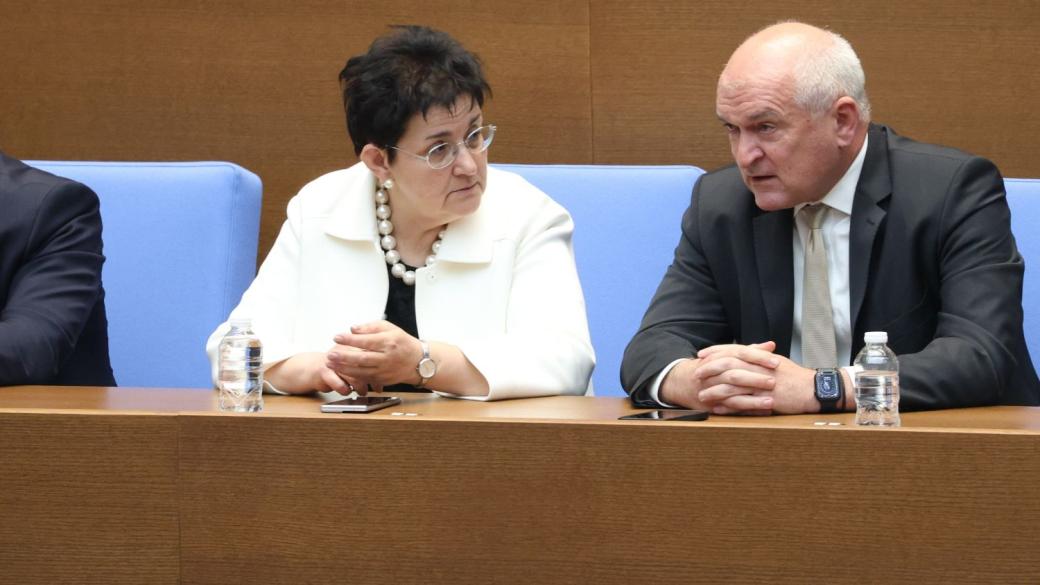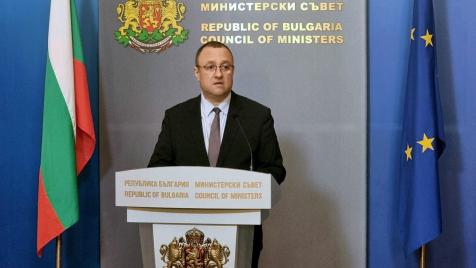The Bulgarian Ministry of Finance is pledging 15 billion euros in new debt over 4 years
Annual interest payments will reach 1.5 billion euros in 2028, increasing by 250 million per year

© ECONOMIC.BG / BTA
In the next four years, Bulgaria's public debt will increase by more than 15 billion euros. Accordingly, the interest on servicing this accumulating debt will also increase, and in 2028 alone, the budget will have to allocate nearly 1.5 billion euros for this purpose. This became clear by the numbers set out by Finance Minister Lyudmila Petkova in the draft budget in the Medium-Term Budget Forecast for the next four years.
At the end of the period 2025-2028, according to the document, Bulgaria will have accumulated debt worth 40 billion euros, or 32.8% of its estimated gross domestic product (GDP). Aggregate interest payments for the four years will reach 4.5 billion euros.
The bulk of the new loans, as always, are intended to cover the planned budget deficit, refinance maturing debt and pay interest on it.
Petkova continues the policy of previous finance minister Assen Vassilev and will keep the budget deficit on the verge of the permissible 3% in the next 4 years. She even points out that the actual deficit for 2025 is close to 6%, but with the one-off measures taken to cover it, it will stay within the 3% range.
Structure of Bulgarian debt
In the residual maturity structure of the debt at the end of 2024, debt with a maturity of over 10 years is expected to predominate - 32.2% (29% for 2023), followed by debt with a maturity of 5 to 10 years - 31.4% (36.1% for 2023), debt with a maturity of 1 to 5 years - 29.2% (26.7% for 2023) and that with a maturity of up to 1 year - 7.2% (8.2% for 2023). Throughout the forecast period, there will be a predominant share of the debt with a maturity of 5 to 10 years and debt with a maturity of over 10 years.
By type of instrument, bonds issued on international capital markets will continue to occupy a dominant position both at the end of 2024 – 64.9% (61.8% for 2023) and throughout the forecast period. Their share is on an increasing trend and is expected to reach 81% by the end of the period. Government notes issued on the domestic market and government loans have a decreasing share, reaching 13.7% and 4.5% respectively by the end of 2028.
By lender, by the end of 2024, the largest share goes to the European Union (including the EIB and the EC) – 82% (81.1% in 2023), and its dominant position is expected to remain in the coming years. The expectations are for an increase in the share of loans received from the Council of Europe Development Bank and reaching 15.1% by the end of the period (7.2% by the end of 2024), with a decreasing share of loans from the International Bank for Reconstruction and Development (IBRD) and loans from other creditors.
The interest rate and currency structure of the Bulgarian public debt at the end of 2024 is characterized by a clear predominance of fixed-rate liabilities of 99.7% (99.5% for 2023) and of euro and lev components – 94.2% (99.9% for 2023). These trends are expected to be maintained throughout the period under review. Interest expenses for servicing the state debt in 2024 are expected to increase to 476 million euros (415 million euros on the external component and 61 million euros on the internal component), compared to the level reported at the end of 2023 - 390 million euros (332 million euros and 58 million euros, respectively).
Translated by Tzvetozar Vincent Iolov

 Georgi Zhelyazkov
Georgi Zhelyazkov 




